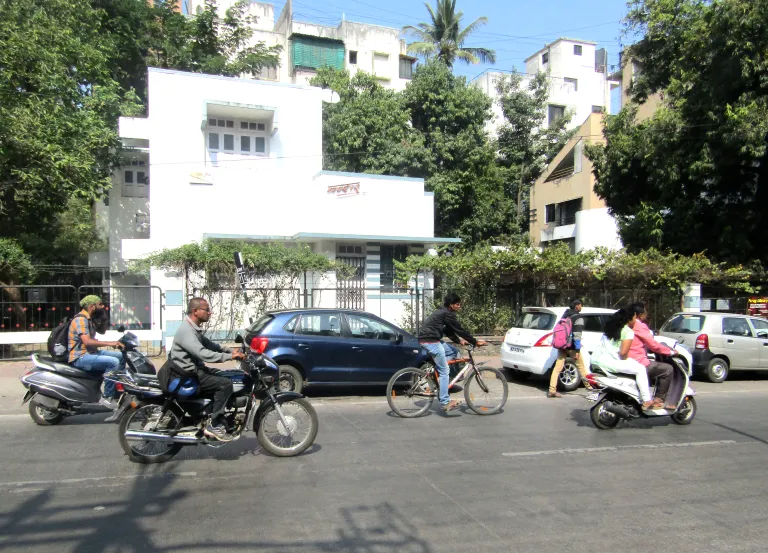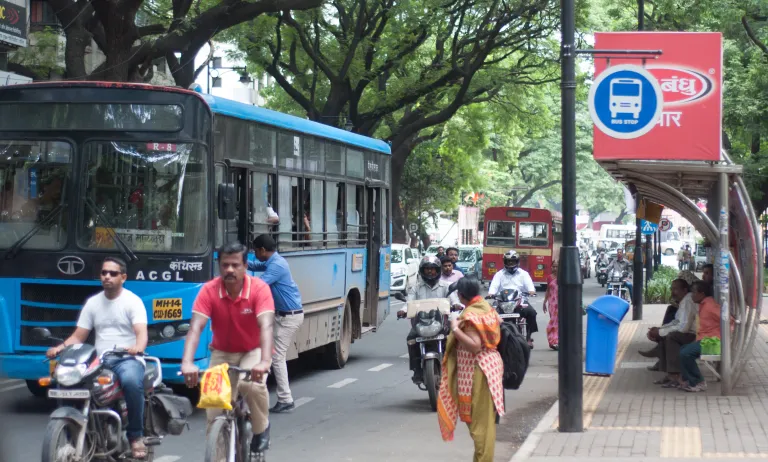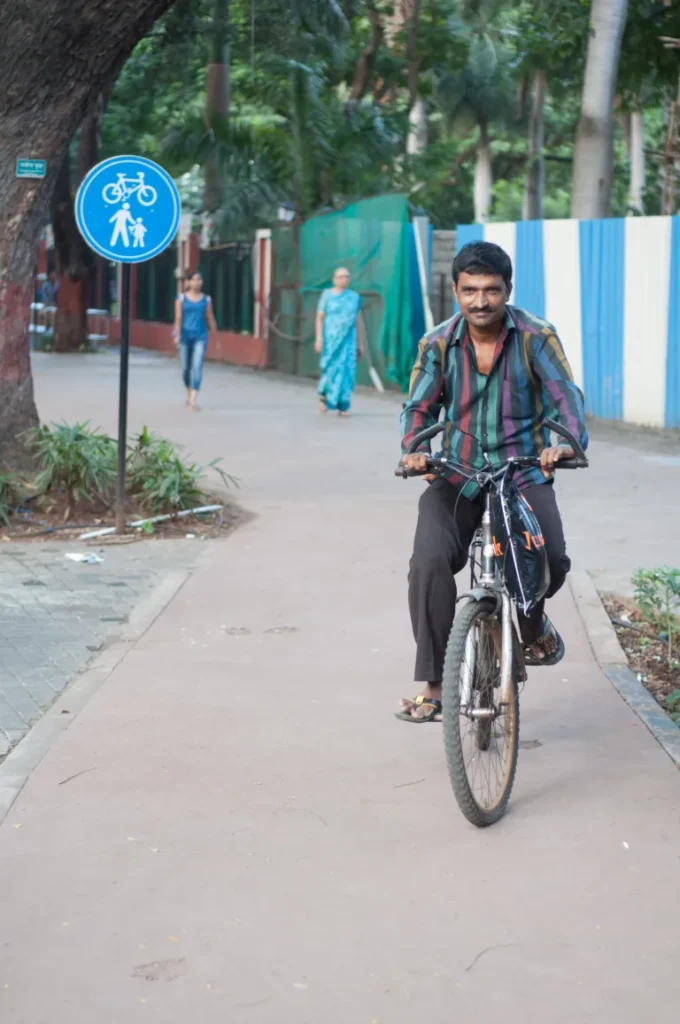“I would gladly leave my motorcycle home and cycle at least thrice a week if roads were made safer!”, said Deepti Gokhale, a working woman in Pune. Granting her wish and that of many others in the city, the Pune Municipal Corporation (PMC) General Body has approved a Comprehensive Bicycle Plan which envisages safe and convenient cycling conditions for existing and future cyclists in the city.
Writer unknown
To transform this vision of a cycling haven into reality, the Plan provides several recommendations including the creation of a city-wide cycle track network, a public bicycle sharing system, design guidelines for cycle-friendly infrastructure, bicycle parking facilities and strategy for awareness campaigns. Its vision for integration with public transit prompts Pune’s citizens to use cycling for last-mile connectivity. With the Pune Bicycle Plan, PMC aims to improve the city’s share of cyclists from its current 3%[1] to 25% by 2031.

Not long ago, cycling was a widely popular mode of transit, favored by most school and college students. However, today cycling constitutes a mere 3% of the city’s trips owing to congested, unsafe roads with over 500 motorized two-wheelers and cars being registered every day. In an effort to make Pune a cycle-friendly city again, the Comprehensive Mobility Plan, prepared in 2008, set an ambitious goal that “by 2031 at least half the trips in Pune i.e. 50%, should be by walk or cycle”[2]. To meet this goal, PMC set out to create a Bicycle Plan for the city, with support from the Ministry of Housing and Urban Affairs (MoHUA) and encouragement from Parisar, a non-profit organization lobbying for sustainable transport.
The Corporation appointed a team of consultants, including iTrans, Prasanna Desai Architects and Centre for Environment Education (CEE), to create the plan. The consultants surveyed over 11,000 people from various backgrounds for their travel patterns, views about cycling, willingness to shift, etc. A Bicycle Advisory Committee (BAC) was formed to oversee the progress of work, with regular cyclists and concerned citizens as key members. ITDP India Programme was also a part of the BAC and helped in periodically reviewing the Plan. Two rounds of public consultation took place before the drafted Bicycle Plan was submitted to the General Body for approval.
Today cycling constitutes a mere 3% of the city’s trips

One of the primary objectives of the Pune Bicycle Plan is the creation of a 300 km network of bicycle tracks in the city. The fear of riding on roads with mixed traffic deters people from cycling regularly. Segregated, user-friendly cycle tracks, like the one recently constructed on JM Road, will help put them back on their bicycles.
A key component of the Plan to support the cycle track network in the city is the Urban Cycling Design Guidelines for cycling infrastructure, like the physically segregated cycle tracks in high-speed roads, the visually segregated cycle lanes in medium-speed roads, shared use of cycles and motorised traffic in low-speed roads, and appropriate vegetation. The Plan details the width and material requirements to enable comfortable conditions for cyclists.
The public bicycle sharing (PBS) system proposed under the Plan aims to serve as another mode of transport for commuters and provide efficient last-mile connectivity for public transit users. The Plan suggests 388 stations and 4700 bicycles in the first phase, with a proposed total of 13100 docked bicycles. A dockless PBS system, recently piloted with 275 bicycles in three different areas of the city, has received great response from residents and four vendors dealing with dockless systems have recently signed an MoU with PMC.
Apart from the policy and design changes, the Plan also recommends awareness and outreach programmes to rejuvenate the culture of cycling in the city. As part of these programmes, several discussions have been conducted with multiple stakeholders such as schools and colleges, RTO, Traffic Police, various NGOs, cycle shops and corporate staff (as a part of their CSR initiative).
The fear of riding on roads with mixed traffic deters people from cycling regularly

The year 2018 will see various measures for the implementation of the Cycle Plan
The year 2018 will see various measures for the implementation of the Cycle Plan, like the setting up of PMC’s Bicycle Department, re-construction and retrofitting of select existing cycle tracks, and the development of a training facility for cycle mechanics. With many such steps in place – and in the pipeline – for the improvement of all sustainable transportation modes, Pune is becoming an incredibly ‘smart’ city indeed!
[1]“The mode share of cycles, elicited from the household survey carried out in 2016 for the Pune Cycle Plan is 3%. This is a much smaller proportion as compared to the modal share of 2012 from Pune Metro DPR study which shows 9% of cycle as a mode share.”- Comprehensive Bicycle Master Plan, 2017
[2] Currently, walking and cycling constitute 32% of the trips made in the city
